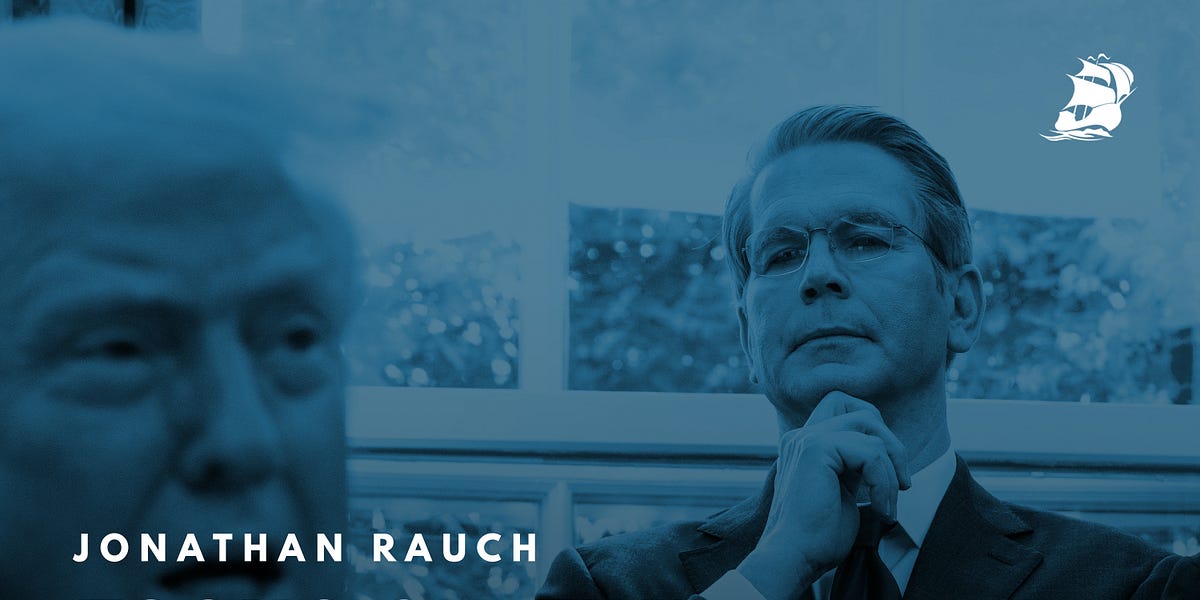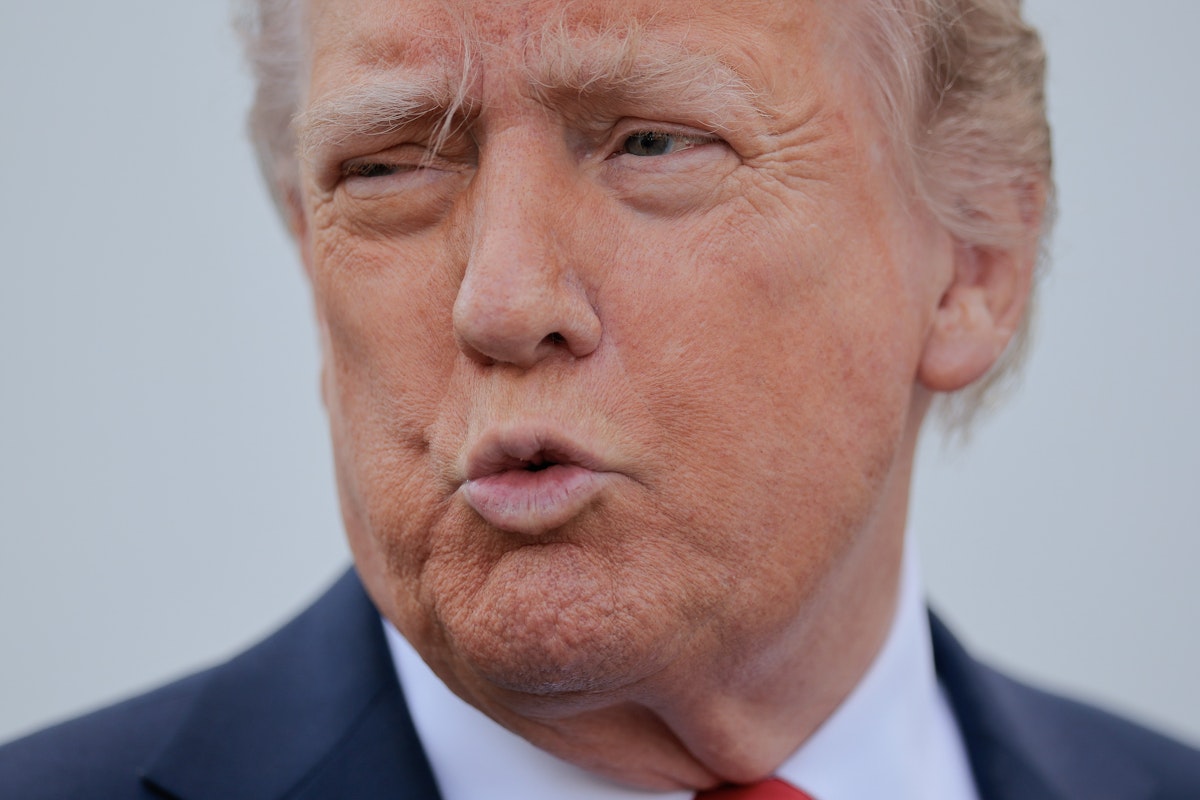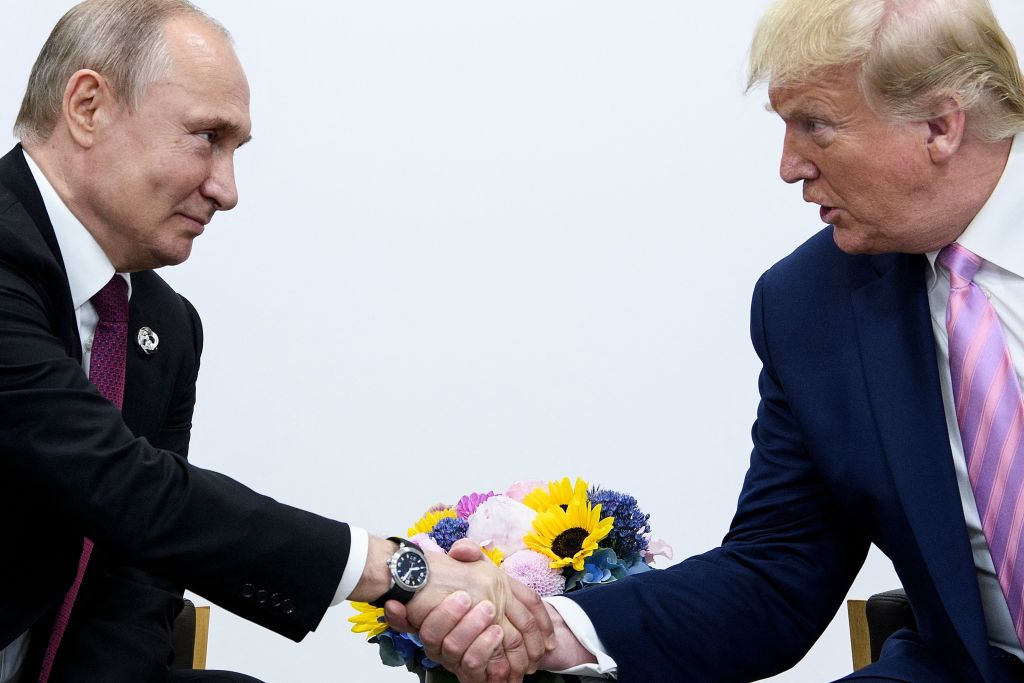
Jonathan Rauch: Focus on the Corruption
April 23, 2025
Trump Isn’t Even Popular on Immigration Anymore, Brutal Poll Shows
April 23, 2025Donald Trump’s pattern of abuse reflects a broader global trend of patriarchal power, making feminist resistance more urgent than ever.
President Donald Trump has a long history of treating women like property.
From 1996 to 2015, he was the owner of the Miss Universe Organization. Many of the contestants complained about his inappropriate behavior towards them, such as entering the dressing rooms while they were naked. Tasha Dixon (Miss Arizona 2001) reported, “He just came strolling right in. … Some girls were topless. Other girls were naked.” Many of them were teenagers. In an interview with Howard Stern, Trump defended this behavior saying, “I’m allowed to go in because I’m the owner of the pageant.”
Since the 1970’s, no fewer than 26 women have accused Donald Trump of sexual misconduct, ranging from harassment to sexual assault and rape. In a conversation with television host Billy Bush in 2005, Trump infamously stated that his celebrity status entitled him to do anything he wants to women without consent: “I just start kissing them,” he said, “I don’t even wait. And when you’re a star, they let you do it. You can do anything. … Grab ’em by the pussy. You can do anything.” He was subsequently convicted of sexual assault against E. Jean Carroll and directed to pay over $86 million in damages for assault and defamation.
Now, as Trump enters his second term in office, his rapaciousness seems to have found a new outlet of expression on the global stage. In an interview with Fox News, he stated that Ukraine should not have fought back against Russia when they invaded because Russia was “much bigger, much more powerful.” The following month, in a White House press conference with Ukrainian President Volodymyr Zelenskyy, Trump said that Ukraine “never should have started it”—as if they were somehow responsible for having caused themselves to be invaded.
Feminist writers have long argued that there is an intrinsic relationship between patriarchy, rape and colonialism. The seizure of land by force is comparable to the seizure of a woman’s body—and historically rape and war have often gone hand-in-hand.
In order to get a better understanding of how Trump’s attitudes towards women might be related to his foreign policy, I reached out to Dr. Judith Herman, a world-renowned expert in trauma studies. Herman is a professor of psychiatry at Harvard Medical School, director of training at the Victims of Violence Program at Cambridge Hospital (Massachusetts), and a lifelong feminist activist. Her pathbreaking 1992 book Trauma and Recovery: The Aftermath of Violence from Domestic Abuse to Political Terror has been described as “almost singularly responsible for the legitimization of rape trauma in the psychiatric field.”

I spoke with Herman from Kyiv last month to ask her about the connections between Donald Trump’s sexual assault conviction and his foreign policy.
This interview has been lightly edited for length and clarity.
Alexander Price: Is there a relationship between the way a powerful male leader like Trump or Putin thinks about boundaries and their sense of entitlement to take whatever they want?
Dr. Judith Herman: I frequently start my talks about psychological trauma with a slide that lists the rules of tyranny—the rules of dominance and subordination.
The rules are pretty straightforward: The strong do what they please because they can. The weak submit because they have no other choice. And the bystanders are either complicit or too terrified to intervene, or just don’t care.
These are the same rules whether we are talking about international relations or whether we’re talking about intimate personal relations.
Price: In 2017 during Trump’s first presidency, there was a book in which you and many other psychologists discussed the psychological profile of Donald Trump. I wonder if you think the insights from this book have held up?
Herman: It was called The Dangerous Case of Donald Trump. I was one of 27 contributors, psychiatrists, psychologists, other mental health professionals, who felt we have a professional duty to warn the public when a person presents a danger.
We saw this man as a classically dangerous person because of his grandiosity, his sense of entitlement, his tendency to perceive people either as supporters or enemies, and his general admiration for violence, and how he made no secret then of his admiration for dictators or his wish to be one. What we warned was that when such dangerous people are put in positions of power, their dangerousness is amplified.
There was a lot of wishful thinking back then that once he was in a position of power and responsibility, he would modify his behavior—but in fact he amplified it and found a way to go after anyone who tried to restrain him. We’ve seen that to an even greater extent in his second term.
Price: One of the contributors to this book was Robert Jay Lifton who did pioneering work on trauma in World War II. At the 2025 Munich Security Conference, many European political leaders began comparing Trump’s attitude of appeasement towards Vladimir Putin to Western appeasement of Hitler in 1938. I’m curious if you have any feelings about how the present moment in history fits with that historical background of where America and Western democracy are coming from and the values that we hold?
Herman: I would call this the textbook rise of fascism.
What you see in the rise of fascism is a population that is suffering from a loss of status—loss of economic security. And a leader who promises that he will magically restore them to the greatness they deserve. And that he alone can do it. That he embodies in his person the will of the populace who are and will be the retribution for their grievances. And he promises this by finding a scapegoat to blame for their loss of what they feel are the privileges they deserve.
I think basically we check all of those boxes.

Price: On the issue of appeasement or peace negotiations, do you think that it is possible to reason with a fascist or authoritarian leader? Or to what degree we should consider the possibility of alternatives to force?
Herman: I think the Europeans are wise to be developing their own deterrent force.
It’s unclear whether in his subservience to Putin, Trump is merely what Lenin called a useful idiot or—more likely in my view—a Russian asset. I think there’s considerable evidence to suggest that, to the extent that he’s not owned by the Saudis, he’s owned by the Russians.
But in either case, we saw how appeasement and peace in our time worked out in 1938 and 1939. Not only has Mr. Trump made no secret of his admiration and sympathy for Putin, but Putin himself has made no secret of his desire to make Russia great again and to restore the lost glory of the Soviet empire, citing the United States and Europe as corrupting influences that have threatened the peace of the world.
That’s the other kind of fascist language that seems very familiar: the promise of purification through violence. That the glory and purity and perfection of the idealized lost power will be restored by destroying the scapegoats.
Price: Trump seems to have come fully into his personality in the 1980s. He seems to have an image of himself as a sort of Hugh Hefner-Playboy type, surrounded by beautiful women and opulent displays of wealth. Do you think this attitude of viewing women as property might be related to his attitudes about how powerful states have the right to behave?
Herman: Once again, if you are the dominant person, then you have no boundaries. You have the right. You own other people. You have the right to do whatever you please with them. So he treats women in general as subordinates that he has the right to treat however he pleases.
But he also views his generals that way. “My generals,” he called them. “Why don’t I have generals like Hitler’s generals?”
It’s basically an instrumental view of all other human beings.
Price: Are there different ways of thinking about the exercise of power so that it doesn’t have to be “power over”?
Herman: Usually when I talk about these things, I contrast the rules of tyranny with the rules of equality, or the rules of mutuality.
There’s a graphic that was developed by the Domestic Abuse Intervention Project in Duluth, Minn., called the Violence Wheel and the Non-Violence Wheel.
The Violence Wheel has power and control at the center. And then there were the various techniques of coercive control of which violence is only one.

And then in the Non-Violence Wheel the center of the wheel is equality and the spokes of the wheel are things like respect, honesty, shared responsibility, shared decision-making, and so on.

Price: Today we face alternatives between liberal democracy on one side and then what leaders like Donald Trump and Vladimir Putin are offering on the other side. What is the nature of the attraction towards Putinism and MAGA—why do people choose it?
Herman: Timothy Snyder at Yale has written extensively about this issue. In his many books, he talks about the power of oligarchy and the fact that if you are running an oligarchy then you’re transferring wealth upwards from the general public to the very few, the oligarchs at the top, you don’t really want to offer people freedom or prosperity, so what you offer them is hate. You offer them the fantasy of lost glory to which you are entitled and to which only the leader will restore you. And you give them someone to blame and to feel superior to.
It’s no accident that authoritarian movements are always misogynist. They’re always anti-Semitic. They’re always racist—because this is what they offer their population. You will have someone who is subservient to you and to whom you can do whatever you want with impunity. And that, unfortunately, is attractive to many people.
If you are running an oligarchy then you’re transferring wealth upwards from the general public to … the oligarchs at the top, you don’t really want to offer people freedom or prosperity, so what you offer them is hate.
Dr. Judith Herman
Price: I wonder what you think about the way that Trump and his followers have been going so hard against trans people, women, and people of color through their targeting of DEI initiatives. Why are they going going so hard against these targets?
Herman: Well, my theory is that in many parts of the U.S., though certainly not all, it’s still considered in slightly poor taste to blame the Jews for everything. Although, when they talk about George Soros or elites, who do you suppose they’re talking about?
I’ve been teasing my gay and lesbian friends, saying, you know, “I’m sorry, but you don’t make nearly as a good scapegoat [as the Jews], because nobody really thinks gays and lesbians control the planet with their money, and are also simultaneously communists—but Jews are smart, so we can do all that.” But I think transgender people are a perfect target because it can get everybody into a moral panic about penises. “Eek! A penis!”
Price: That’s a great segue to my next question. Politics in the U.S. has often been shaped by sexual scandals. In the 1990s we saw the impeachment of Bill Clinton over a sex scandal, for example. But then last year Donald Trump was convicted of sexual assault against E. Jean Carroll, but it didn’t affect his reelection. Do you have an explanation for the disconnect? Do his supporters believe it’s not true, or that it was a political attack? How has this not had a more negative impact on his political career?
Herman: Well, of course, he projected it as persecution.
There’s an acronym called DARVO that was coined by Jennifer Freyd, a psychology professor who studies trauma and abuse. It stands for Deny, Attack, Reverse Victim and Offender, and that’s what perpetrators generally do when anybody tries to hold them accountable: deny, deny, deny, and attack anyone who’s trying to hold them accountable, by saying “I’m being so victimized!” This is what you heard Trump saying to Zelenskyy about how poor Mr. Putin had been so victimized. [“Russia, Russia Russia!”]
So I think some of his supporters accept his denial. Some of his supporters feel that he’s entitled to do whatever he wants to women and that just makes him more of a man.
There is a lot of backlash to the feminist movement and particularly to the #MeToo movement which really moved things forward in terms of demanding accountability for sex offenders. You’ve got to understand that the status quo is that a rapist has somewhere between a 1 percent and 5 percent chance of being held accountable in the U.S., and I don’t imagine that the data are very different in other countries. Rape is a felony, but in the popular imagination, rape means a Black stranger attacking a pure blonde virgin.
In reality, most rapes are committed by people the victims know. The population of rapists, to the extent that they’ve been studied, don’t look any different from the general population. They don’t qualify for any psychiatric diagnosis. They look normal, and many of them have positions of power and prestige. Particularly those who are serial offenders often use their status to access victims.
So when it comes to holding those people accountable, most of the time it doesn’t happen. The estimate is it’s between 5 and 10 percent of the male population who commit these crimes, and they’re accustomed to getting away with it.
Price: I am wondering if you have any thoughts on what role women might play in the present global political environment where we are seeing a rise of authoritarian patriarchal leaders?
Herman: Women have a very important role to play because women’s rights are human rights. So women organizing for our rights, that’s half the population. It’s also clear that women have organized many times before to move democracy forward: to get the vote, to be able to own property, to have reproductive freedom. These are the most basic rights of citizens, and they are under increased threat. So I do think women have an important role to play.
I also think that because we have subordinate status, sometimes our organizing has gone under the radar.
I have a colleague in Turkey who I think of as my counterpart, an expert on trauma, and I remember meeting her at a conference in Europe many years ago at a conference of the International Society for Traumatic Stress Studies.
In the evening, a bunch of women went out to dinner, and we started sharing our stories around the table of how we got involved in the feminist movement. The stories from the North American and Northern European women were pretty similar: encountering various forms of discrimination, having a professional career, sexual harassment and so on.
Then when it came to my Turkish colleague’s turn, she said, “Well, in my country it was a little different.” And she said very calmly, “You see, in 1980, we had a coup d’etat, so all the progressive men were either in exile or in prison.” But they didn’t bother the women, because they thought the women were of no consequence. So the women organized and they spearheaded the peace movement. She visited people in jail and wrote about torture. They started a battered women’s shelter. And a lot of this escaped notice because they were women. So there are certain advantages to being underestimated.
Price: Is there anything else you would like to share with readers?
Herman: I would like to share a little advice that I got from my mother. I actually learned a great deal about resistance and courage from my mother. When I was 11 years old, my parents were called [to testify] before Senator McCarthy [at the House Un-American Activities Committee hearings], and my mother refused to answer his questions and refused to name names. So we’ve lived through times like this. And her advice was: “Activism is the antidote to despair.” So I’ve tried to hold on to that.
Great Job Alexander Price & the Team @ Ms. Magazine Source link for sharing this story.





